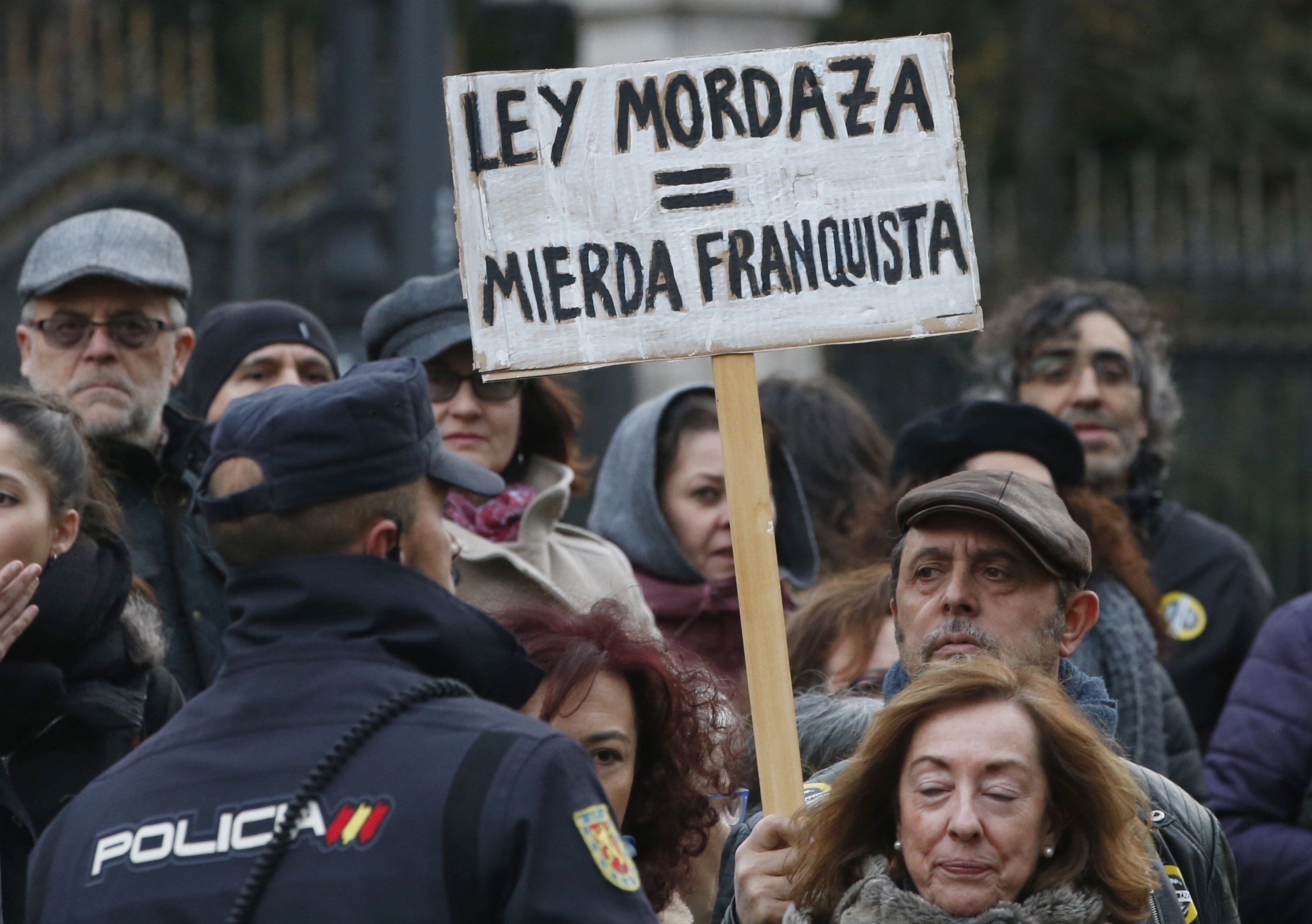It has been like getting blood out of a stone, but eventually the reform of Spain's infamous "Gag Law" - the Public Safety Act of 2015 - is getting closer. Reform initiatives were blocked in the Congress of Deputies for a long time. But finally, as Pedro Sánchez promised at the Spanish Socialists' congress in Valencia, he has unblocked them. This Wednesday, the PSOE and Unidas Podemos have registered amendments to the repeal proposal registered by the Basque Nationalists (PNV), which will serve as the foundation for the legislative work to be done. The intention is for the new law on public safety to make it clear that the public authorities must guarantee the exercise of fundamental rights and public liberties, and also to establish the law's subordination to international treaties on the matter. These are the main keys to the reform proposed by the Spanish executive, which have been decided in recent weeks, yielding a total of 51 amendments. In addition, each of the groups has submitted its own amendments.
The right to protest
With regard to the guarantee of the right to demonstrate, the proposed amendments correct everything in the existing law that has to do with prior communication. "The lack of the prior communication procedure, although it can be considered a minor infraction, will not be a reason to prevent the exercise of the freedoms of assembly and demonstration," the proposed text states. In fact, it is contemplated that "lack of prior communication" will not be considered an infringement when the exercise of the right "requires a speedy expression in the face of an event of undoubted social repercussion that does not allow delay." Executive sources cite demonstrations such as the protests against the "wolf pack" court decisions.
As well, the focus is on proportionality in action taken by police forces in these rallies: "Measures for the maintenance or restoration of public order in gatherings and demonstrations will be guided at all times by a human rights approach". Demonstrations will only be punishable "if they cause violence or disturbance to public order."
Body searches
Another aspect agreed on between the PSOE and Unidas Podemos is the approach to external body searches and identification of citizens. These searches can be carried out when there are "rationally and objectively substantiated motives." They will be carried out without exposing the whole of the body, "with the utmost respect for sexual identity" and "always trying to do so in a reserved place and out of sight of third parties." The officer must "make a record of this action," as well as the motives, and the identity of the agent himself. Searches may be carried out against the will of the affected party "by taking the necessary coercive measures".
Two hours at the police station
With regard to identifications, the joint text of the PSOE and Podemos states that, when identification of a person by any other means is not possible, “police officers, to prevent the committing of a crime or with the aim of punishing an infraction, may require the person to accompany them to the 'nearest' police stations for the sole purpose of identifying them “for the time strictly necessary”. In this regard, it is noted that "in no case may it exceed two hours." Only exceptionally, "for justified reasons, verifiable and communicated to the person concerned", may this period be extended up to a maximum of six hours.
Lighter punishments
The two Spanish government partners also want to introduce changes in the size of fines, reducing fines that are "excessive" and making it clear that "criteria of proportionality" must always be applied. Thus, in the section on "scaling of punishments", two new variables are introduced: the economic ability to pay of the offender and the cases of offenders who are under 18. According to the text, “the singular circumstances of the presumed situation” will be taken into account, and may lead to the suspension of the sanction or its reduction, to the conciliation of the perpetrator with the persons suffering the offence and with restitutional activity, in particular in those cases where the offender is a minor”. In this way, according to Spanish government sources, "the current limitation on substituting penalties against under-age offenders with social or community work, now limited to a single occasion, would be removed."
They put actual numbers on the reduction of fines, too. For those who receive a salary of up to 1.5 times the minimum inter-professional wage in Spain, the reduction will be 50%. For those who receive between 1.5 and 2.5 times the minimum wage, the reduction will be 25%.
The work of journalists
During the years that the so-called Gag Law has been in force, there have been many complaints and lawsuits from media professionals, especially with regard to images filmed in public places. The agreement reached by the PSOE and Unidas Podemos is clear in this regard: "The mere taking of images in places of public thoroughfare and demonstrations, or their simple dissemination, will not be an infraction." A serious infraction will only occur through “the use of images or the personal or professional details of authorities or officers of security and police bodies when it generates a certain danger to their personal or family safety or that of protected facilities or it puts the success of an operation at risk”. This dangerous situation "must be reflected in the report or complaint in as much detail as possible."
Below, the proposed 51 amendments to the 2015 "Gag Law".

